Hello there, fellow dog parent! As a holistic veterinarian, I can’t stress enough the importance of dental health in our beloved pets. Bulldog dental health, in particular, is an area that requires special attention. Bulldogs, with their unique jaw structure and adorable wrinkled faces, are prone to specific dental issues that can impact their overall health if not addressed promptly.
Just like in humans, poor oral hygiene in bulldogs can lead to a host of problems, from bad breath and tooth loss to more serious conditions like heart disease. That’s why it’s crucial to maintain your bulldog’s teeth cleaning routine and understand the common dental problems in bulldogs.
Whether you’re dealing with bulldog dental care for the first time or looking for new ways to improve your furry friend’s oral health, I’m here to guide you. Let’s explore the world of bulldog oral hygiene together and ensure your pet’s smile stays as bright and healthy as their personality!
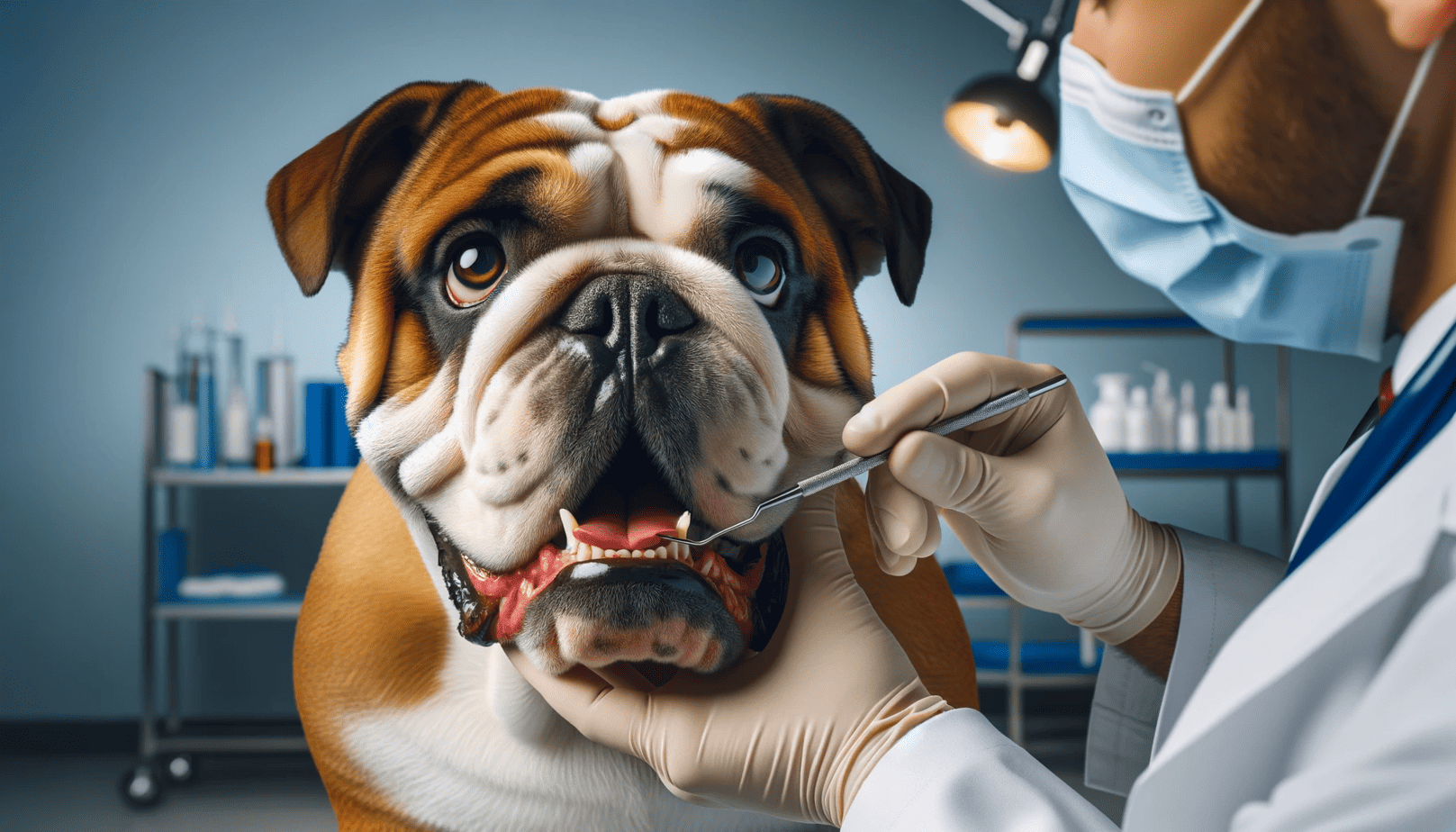
Signs of Dental Disease in Bulldogs
As a holistic veterinarian, I’ve seen firsthand how dental health can affect the overall wellbeing of your beloved bulldog. Bulldogs are known for their distinctive looks and charming personalities, but they’re also prone to dental issues. Understanding the early signs of dental disease can help you take immediate action and prevent further complications. Let’s explore some of the common signs of dental disease in bulldogs.
Bad breath is often the first sign of potential dental problems. While it’s normal for your bulldog to have a certain ‘doggy breath’, a sudden change in their breath’s odor could indicate underlying dental issues. If you notice a foul or unusually strong smell, it’s time to consult your vet.
Another sign to watch out for is a change in eating habits. Bulldogs love their food, and a sudden loss of appetite or difficulty eating could be a sign of oral discomfort. If your bulldog is eating less, chewing on one side, or dropping food while eating, these could be signs of dental disease.
Excessive drooling, bleeding gums, or visible tartar buildup are also common signs of dental problems. If your bulldog is drooling more than usual or if you notice blood on their toys or in their water bowl, it’s crucial to get their teeth checked. Tartar buildup, which appears as brown or yellow stains on the teeth, can lead to gum disease if not addressed promptly.
Finally, changes in behavior can also indicate dental issues. If your bulldog seems more irritable than usual, is pawing at their mouth, or is less interested in playtime, they could be experiencing oral discomfort.
Remember, early detection is key when it comes to bulldog dental health. Don’t ignore these signs – your bulldog’s oral health is an integral part of their overall wellbeing. Regular dental check-ups with your vet can help keep your bulldog’s mouth healthy and their tail wagging.
Common Dental Health Issues In Bulldogs
As a veterinarian, I’ve noticed that Bulldogs are particularly prone to certain dental health issues. Understanding these can help you maintain optimal Bulldog dental health.
- Periodontal Disease: This is a common issue in Bulldogs, characterized by inflammation and infection of the tissues surrounding the teeth. If left untreated, it can lead to tooth loss.
- Gingivitis: This is an early stage of periodontal disease where the gums become red, swollen, and bleed easily. Regular teeth cleaning can prevent gingivitis.
- Halitosis: Also known as bad breath, this is often a sign of underlying dental issues in Bulldogs.
It’s important to note that Bulldogs have a unique jaw structure, which can lead to overcrowded and misaligned teeth. This makes them more susceptible to plaque buildup and tartar, ultimately leading to dental diseases.
Regular dental check-ups are essential to identify these problems early. As a pet parent, you should be aware of changes in your Bulldog’s eating habits, excessive drooling, or signs of discomfort while chewing. These could indicate a dental health problem.
Remember, maintaining good Bulldog dental health is not just about fresh breath and a shiny coat, but also about preventing serious health issues. A healthy mouth contributes to a healthy, happy Bulldog!
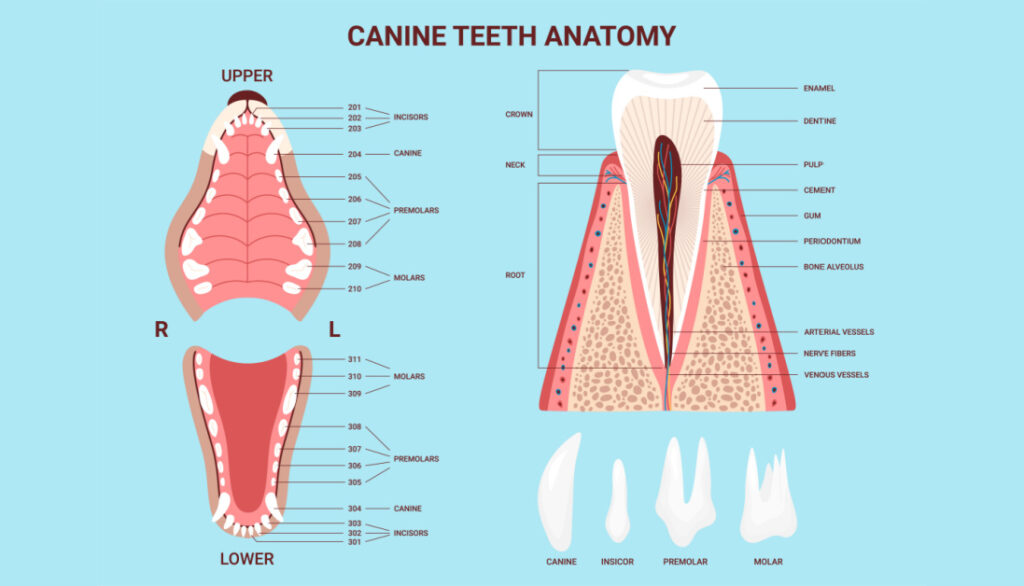
Conventional Dental Health Treatments for Bulldogs
When it comes to Bulldog Dental Health, there are several conventional treatment methods that veterinarians usually recommend. These treatment methods are aimed at maintaining your bulldog’s oral hygiene and preventing any dental problems.
Anesthetic Dental Cleanings
The most common dental treatment for bulldogs is anesthetic dental cleanings. This procedure involves putting your bulldog under general anesthesia. The vet then performs a thorough cleaning of your bulldog’s teeth, gums, and oral cavity. This method is highly effective in removing plaque and tartar build-up that can lead to dental diseases.
While anesthetic dental cleanings can be highly beneficial, they are not without risks. The use of anesthesia can lead to potential complications, especially in breeds like bulldogs that are known to have breathing issues. Therefore, it’s crucial that a pre-anesthetic evaluation including bloodwork and a physical examination is done to assess the overall health of your bulldog before proceeding with the cleaning.
Potential Individual Health Obstacles
While conventional dental treatments can greatly help improve your bulldog’s oral health, there are potential individual health obstacles that need to be considered. Bulldogs are prone to certain health conditions that can complicate dental treatments.
- Heart Problems: Bulldogs are prone to heart conditions. This can make the use of anesthesia risky as it can potentially affect your bulldog’s heart function.
- Drug Sensitivities: Bulldogs can be sensitive to certain drugs, including those used for anesthesia. This can cause adverse reactions during dental procedures.
- Seizures: Bulldogs are also prone to seizures, which can be triggered by stress or certain medications.
- Extreme Age: Older bulldogs may face additional risks with anesthesia and dental procedures. Their overall health and wellness must be thoroughly evaluated before any procedure.
It’s essential to discuss these potential health obstacles with your veterinarian before any dental procedure. Together, you can make the best decision for your bulldog’s dental health and overall well-being.
Dr. Candy’s Holistic Approach To Oral & Dental Health
As a veterinarian, I’ve seen how oral health issues can affect a bulldog’s overall health and quality of life. That’s why I’m a big advocate for a holistic approach to bulldog dental health, focusing on diet and oral health specific probiotics. Let’s dive into these two crucial components.
Diet: Low Carbs, Avoid Added Sugars, Enzymes in Fresh Food
Many people don’t realize how much a bulldog’s diet can impact their dental health. A diet high in carbohydrates can lead to plaque build-up and dental disease. So, I recommend a low-carb diet for your bulldog. This can help prevent dental issues and keep your bulldog’s teeth clean and healthy.
Also, avoiding added sugars is crucial. Sugar is a primary food source for harmful bacteria in your bulldog’s mouth. By limiting their sugar intake, you can help prevent these bacteria from thriving and causing dental problems.
Lastly, enzymes in fresh food can be beneficial for your bulldog’s oral health. Fresh fruits and vegetables contain natural enzymes that can help break down plaque and tartar. Incorporating fresh foods like apples, carrots, and green beans into your bulldog’s diet can aid in maintaining a healthy mouth.
Oral Health Specific Probiotics
Probiotics aren’t just for gut health; they can also play a significant role in maintaining your bulldog’s oral health. Oral health specific probiotics, like Probiora for Dogs, can help balance the bacteria in your bulldog’s mouth, preventing harmful bacteria from causing dental disease.
Probiora for Dogs is a product I often recommend. It’s an oral health targeted probiotic that can help maintain a healthy balance of bacteria in your bulldog’s mouth. It’s easy to use – you simply sprinkle it on your bulldog’s food once a day. Many of my clients have seen significant improvements in their bulldogs’ oral health after using this product.
Remember, bulldog dental health isn’t just about regular teeth cleanings; it’s also about maintaining a healthy diet and using products like Probiora for Dogs to support a healthy oral microbiome. By taking a holistic approach, you can help ensure your bulldog has a healthy mouth and a happier, healthier life.
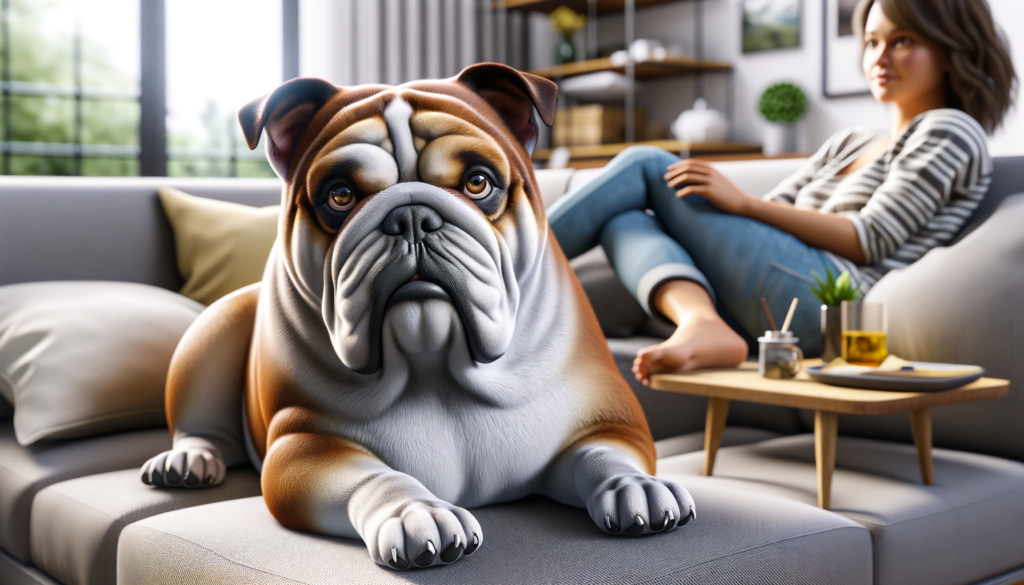
Recommended Dental Chews & Products For Bulldogs
Many dog parents believe that commercially promoted dental chews are a good way to maintain their bulldog’s dental health. However, these products often fall short of their promises. They are full of artificial ingredients, added sugars, and unhealthy preservatives that can lead to plaque buildup, tooth decay, and even gum disease. Furthermore, they can harm the beneficial bacteria in your bulldog’s gut, particularly when combined with drinking water additives.
As a responsible bulldog parent, it’s essential to prioritize the use of natural, healthy alternatives for your pet’s oral hygiene. Single source natural proteins like tendons, raw marrow bones, and bully sticks are highly recommended. Let’s take a closer look at these options.
Tendons
Tendons are a fantastic natural chew for your bulldog. They are tough and fibrous, which helps to scrape off plaque and tartar from your dog’s teeth. Plus, they are a good source of protein and collagen, promoting good joint health.
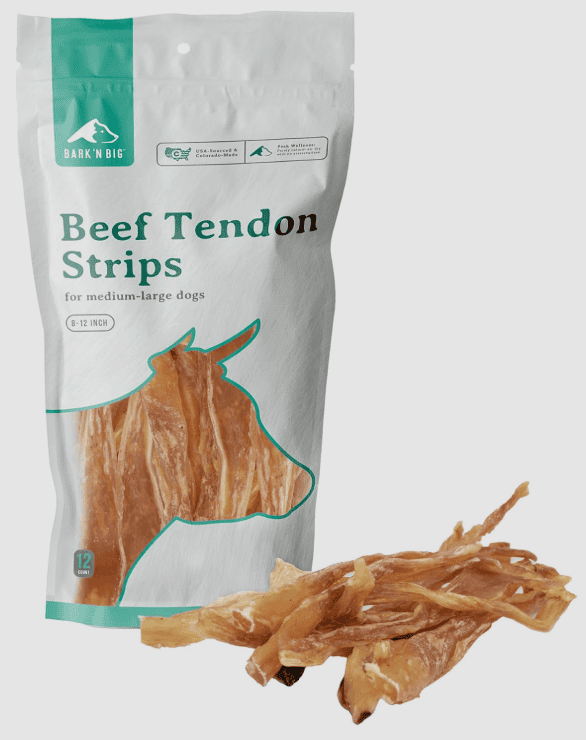
Raw Marrow Bones
Raw marrow bones are another excellent choice for maintaining your bulldog’s dental health. They are a natural source of calcium and phosphorus, which are essential for healthy teeth and bones. Furthermore, the act of gnawing on bones can help to clean your dog’s teeth and gums.
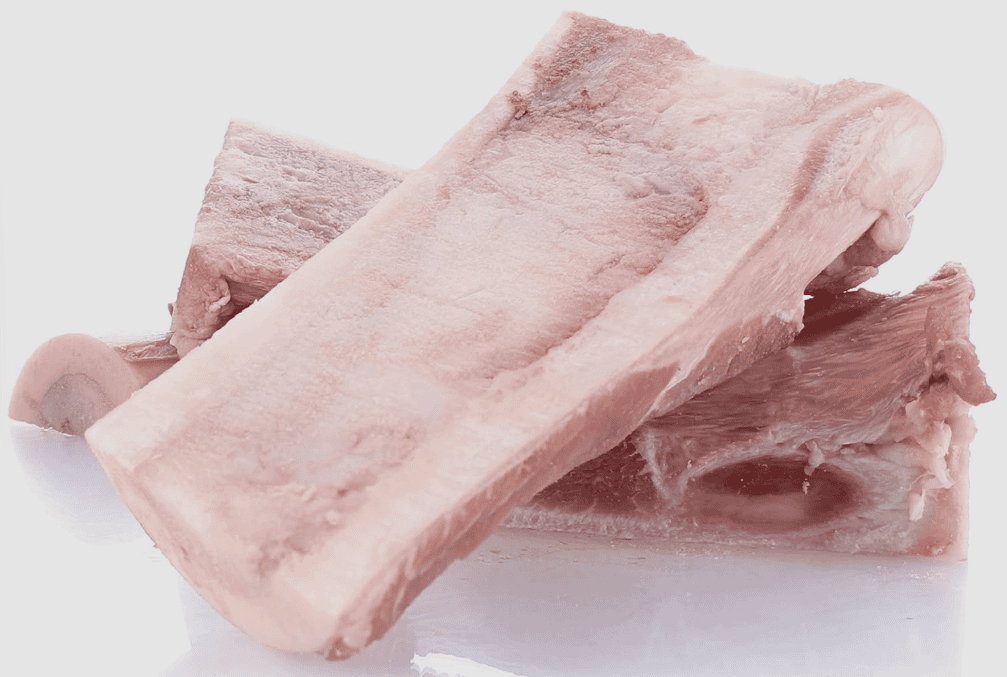
Bully Sticks
Bully sticks are made from 100% beef muscle, providing a natural and digestible chew for your bulldog. They can effectively remove plaque and tartar and are a good source of protein. However, always supervise your dog while they’re chewing on a bully stick to prevent any choking hazard.
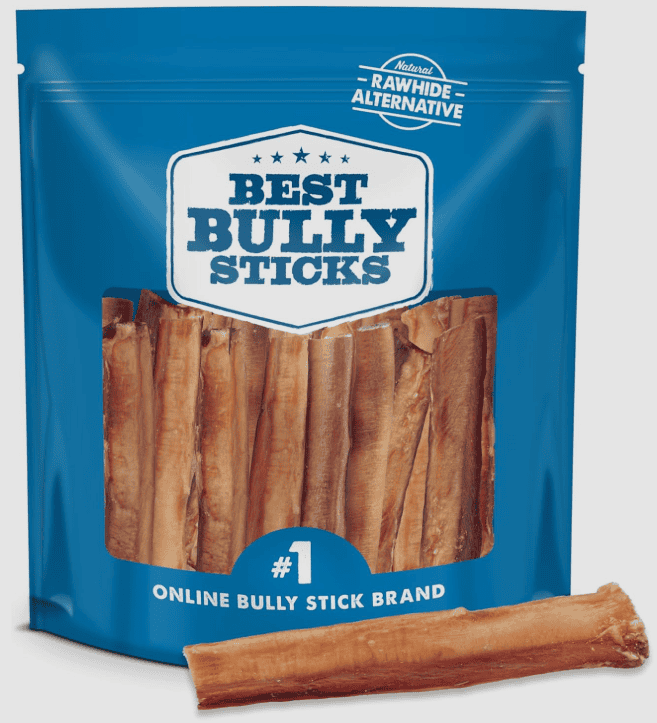
In conclusion, maintaining your bulldog’s dental health is more than just brushing their teeth. Incorporating natural chews into their routine can help keep their teeth clean, their breath fresh, and their overall health in check. Remember, always consult with your vet before introducing any new products into your bulldog’s diet.
Frequently Asked Questions
1. How often should I brush my bulldog’s teeth?
It is recommended to brush your bulldog’s teeth at least 2-3 times a week to maintain good oral hygiene and fresh breath.
2. What kind of toothbrush and toothpaste should I use for my bulldog?
Use a soft-bristled toothbrush specifically designed for dogs. Avoid using human toothpaste as it may contain ingredients that can be harmful to dogs. Instead, use a dog-friendly toothpaste that is safe for ingestion.
3. My bulldog refuses to let me brush his teeth. What should I do?
If your bulldog is resistant to teeth brushing, start by getting him used to the process gradually. Begin by gently touching his gums and teeth with your finger, then introduce a toothbrush with some dog-friendly toothpaste. Make the experience positive by rewarding him with treats and praise. If the resistance persists, consult your vet for alternative oral hygiene options.
4. Are dental chews and toys effective in maintaining my bulldog’s oral health?
Dental chews and toys can be beneficial in promoting oral health by reducing plaque and tartar buildup. However, they should not replace regular teeth brushing. Use them as a supplement to your bulldog’s oral hygiene routine, but remember that brushing is still the most effective method for maintaining fresh breath and healthy teeth.
5. How can I prevent bad breath in my bulldog?
In addition to regular teeth brushing, you can prevent bad breath in your bulldog by providing a balanced diet, avoiding table scraps, and ensuring proper hydration. Regular dental check-ups with your vet are also important to identify and address any underlying dental issues that may contribute to bad breath.
